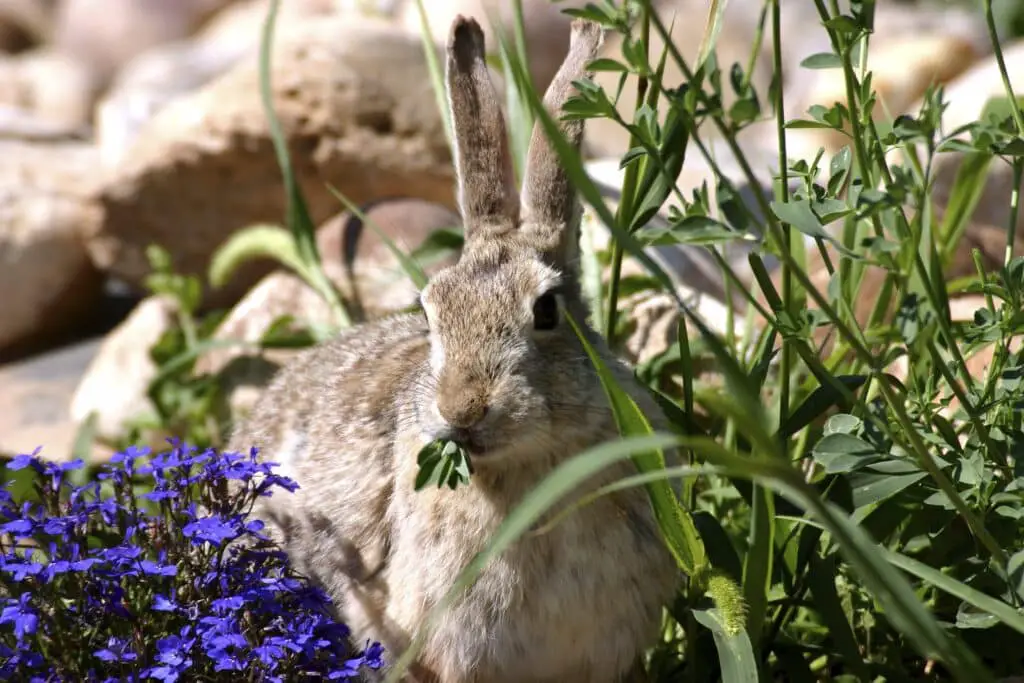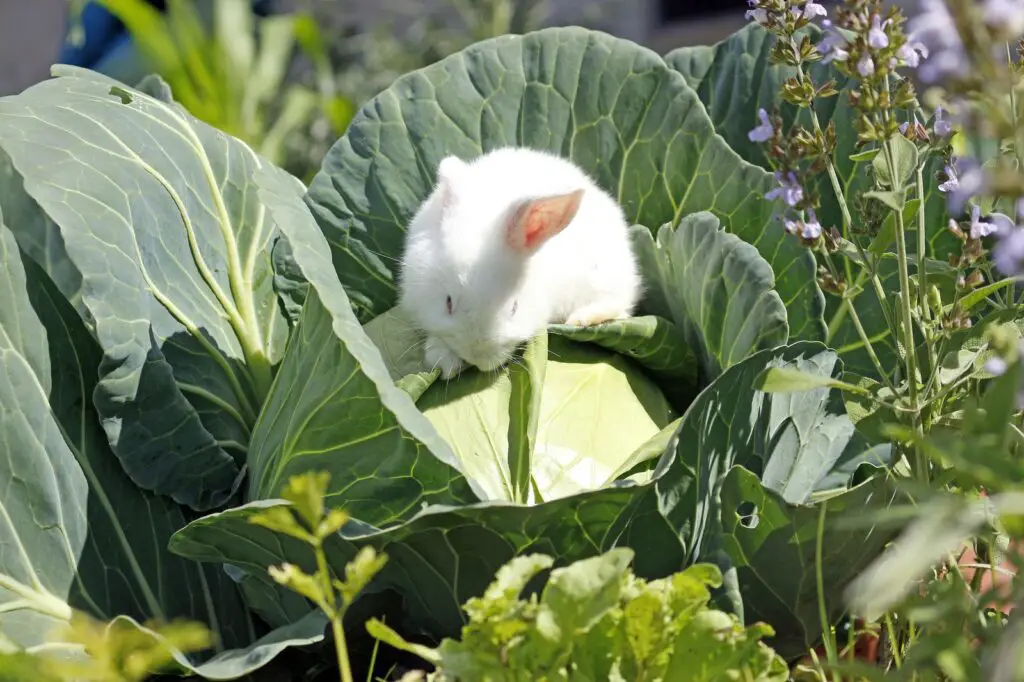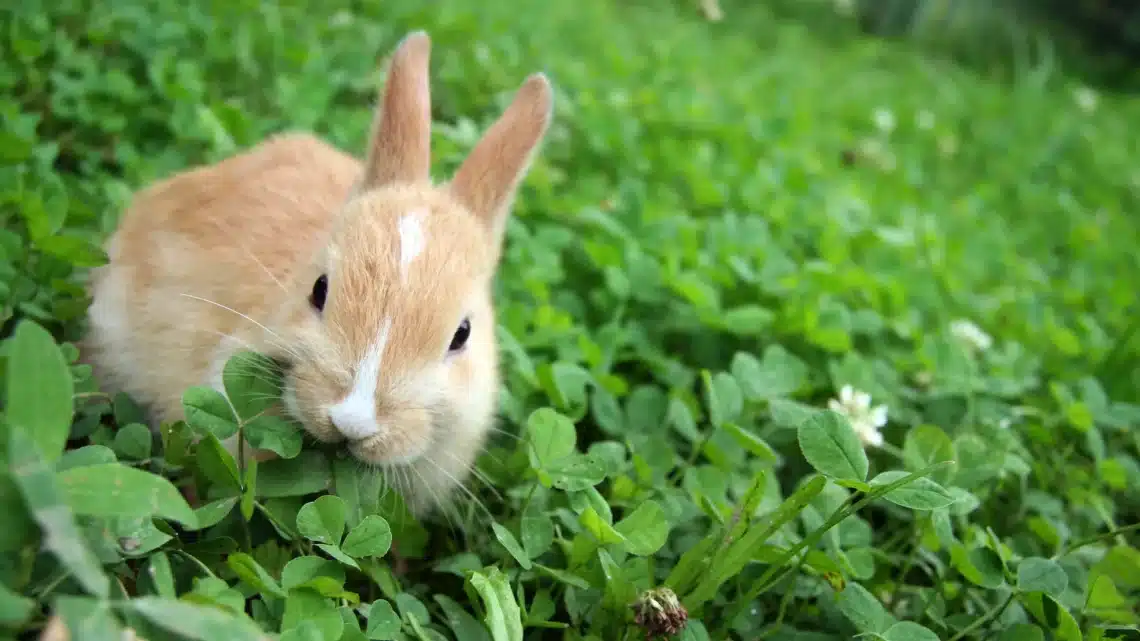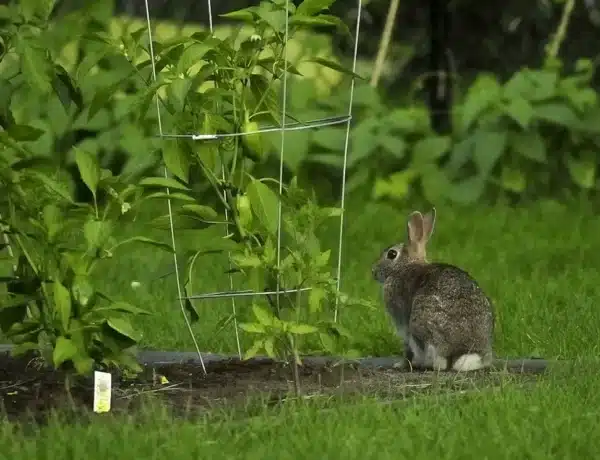Introduction
How To Protect Plants From Rabbits: Gardening can be a fulfilling and rewarding hobby, allowing you to create vibrant outdoor spaces filled with colorful flowers, lush vegetables, and thriving foliage. However, the presence of rabbits in your garden can quickly turn this idyllic scene into a battle to protect your precious plants. Rabbits are notorious for their voracious appetite and can cause significant damage to your garden if left unchecked. Fortunately, there are various strategies you can employ to safeguard your plants and maintain the beauty of your garden sanctuary.
In this guide, we will delve into the world of rabbit-resistant gardening, exploring a range of practical and environmentally friendly methods to keep these furry intruders at bay. Whether you’re a seasoned gardener or a beginner just starting out, these strategies will empower you to enjoy your garden without worrying about rabbit-induced damage. From natural deterrents to physical barriers, we’ll cover a variety of approaches that cater to different garden sizes and preferences. Let’s embark on a journey to discover how to protect your plants from rabbits and maintain the vibrancy of your garden oasis.
By implementing the insights and recommendations in this guide, you’ll gain the knowledge and tools needed to foster a harmonious coexistence between your garden and local rabbit populations. With a combination of preventive measures and strategic planning, you can enjoy the fruits of your gardening labor while ensuring your plants remain safe from the nibbling habits of rabbits. Let’s get started on creating a thriving, rabbit-resistant garden that will be the envy of both novice and experienced gardeners alike.

How can I stop my rabbit eating my plants?
Scents and sprays that repel rabbits
Chemical repellents containing aluminium ammonium sulphate, such as Vitax Stay Off, have some effect in stopping rabbits eating plants. However, they do need to be reapplied regularly, especially while the plant is growing fast or after rainy weather.
Choose Rabbit-Resistant Plants
One proactive approach to prevent rabbit-induced plant damage is to select plants that rabbits are less likely to devour. While no plant is completely rabbit-proof, some varieties are less appealing to them due to their taste, smell, or texture. Opt for plants such as lavender, marigolds, daffodils, and herbs like rosemary, thyme, and sage. These options might discourage rabbits from indulging in a meal at the expense of your garden.
Create Physical Barriers
Creating barriers between rabbits and your plants is an effective way to keep them at bay. Install fencing around your garden using wire mesh or chicken wire. Ensure that the fence is buried at least 6 inches below the ground to prevent rabbits from burrowing under it. The height of the fence should ideally be around 2-3 feet to deter them from jumping over. Regularly inspect the fence for any gaps or weaknesses that rabbits could exploit.
Implement Natural Deterrents
Rabbits have a keen sense of smell, and certain scents can deter them from venturing near your plants. Consider using natural repellents like cayenne pepper, garlic, or vinegar spray on your plants. The pungent odors will make the plants less appealing to rabbits. However, be cautious not to apply these directly to edible plants you intend to consume.
Provide Alternative Food Sources
Satisfy your rabbit’s natural urge to nibble by offering them alternative food sources within a designated area. Plant a rabbit-friendly section in your garden, filled with their favorite greens and herbs. This will redirect their attention away from the rest of your garden and help preserve your plants.
Regular Garden Maintenance
Maintaining your garden can help prevent rabbits from establishing a foothold. Trim overgrown vegetation and remove hiding spots that could encourage rabbits to settle in your garden. Keep the area clean and free from debris that might attract them.
What is a natural rabbit repellent for plants?
If you want a powerful deterrent, red pepper powder or red pepper flakes are touted as great rabbit repellent options. Just sprinkle the powder or flakes around and on top of the plants that you wish to protect.
Garlic and Onion Spray
Garlic and onions are staples in many kitchens, but their strong odors can be a potent deterrent for rabbits. To create a repellent spray, blend several cloves of garlic and a medium-sized onion with water. Strain the mixture and pour it into a spray bottle. Dilute the solution with water and lightly spray it on the plants you want to protect. Reapply after rain or every couple of weeks to maintain its effectiveness.
Cayenne Pepper Solution
The fiery heat of cayenne pepper is another natural rabbit repellent. Mix a teaspoon of cayenne pepper with a few drops of dish soap and water to create a spray. Shake well and coat your plants with the mixture. Rabbits are sensitive to the intense heat of cayenne and are likely to avoid plants treated with this solution.
Vinegar Spray
Vinegar is a versatile household item that can serve as a rabbit deterrent. Combine equal parts of water and white vinegar in a spray bottle and apply it to your plants. The strong odor will make the plants less appealing to rabbits while also serving as a fungicide and insect repellent.
Predator Urine
The scent of predator urine, such as that of foxes or coyotes, can create the illusion of danger for rabbits. Commercially available predator urine products can be sprayed around your garden to deter rabbits. However, make sure to reapply regularly, as the scent may fade over time.
Plant Repellent Plants
Certain plants naturally repel rabbits due to their strong scents or unpalatable tastes. Planting these repellent plants around your garden can act as a protective barrier. Examples include marigolds, lavender, rosemary, thyme, and sage. Not only will these plants deter rabbits, but they can also add beauty and fragrance to your garden.
What is the best protection for rabbits on plants?
Plastic tree guards/spirals (biodegradable spirals based on potato starch are available) or wire netting should be used to protect the trunks of young trees and shrubs. Rabbits can gnaw through plastic and fabric netting but this may give some short term protection.
Physical Barriers
Fencing is a tried-and-true method for safeguarding your plants against rabbit invasions. Using wire mesh or chicken wire, erect a barrier around your garden or the specific area you wish to protect. Ensure the fence is buried at least 6 inches below the ground to prevent rabbits from burrowing underneath. The fence’s height should be around 2-3 feet to discourage rabbits from jumping over. Regularly inspect the fence for any damage or openings that might compromise its effectiveness.
Cloche or Row Covers
Cloches or row covers are transparent or semi-transparent covers made of materials like plastic, mesh, or fabric. Placing these covers over your plants provides a physical barrier that prevents rabbits from reaching them. Cloches are particularly useful for protecting individual plants or smaller areas, while row covers can shield entire rows of plants.
Raised Garden Beds
Raised garden beds offer a natural protective barrier against rabbits. Their elevated design makes it harder for rabbits to access the plants. Additionally, the walls of the raised beds can be further fortified with chicken wire or mesh to create an extra layer of defense.
Repellent Plants
Incorporating plants that naturally repel rabbits can be an effective protection strategy. Rabbits are less likely to approach plants with strong scents or unappetizing tastes. Consider planting marigolds, lavender, rosemary, thyme, and sage around your garden. These plants not only serve as a barrier but also enhance the visual appeal of your garden.
Scent-Based Deterrents
Rabbits have a keen sense of smell, and certain scents can discourage them from approaching your plants. Create homemade repellent sprays using ingredients like garlic, onions, cayenne pepper, or white vinegar. Lightly mist the plants with these solutions, reapplying them after rainfall or every couple of weeks.
What is the best natural rabbit repellent?
If you’re looking for an effective rabbit repellent, look no further than your kitchen cupboard. That’s right – a simple mixture of water and citrus juice can help keep rabbits away from your garden. The citrus scent is unpleasant to rabbits, and the spray will discourage them from eating your plants.
Garlic and Onion Spray
Harnessing the pungent power of garlic and onions can create an effective rabbit repellent. Blend several cloves of garlic and a medium-sized onion with water, then strain the mixture and pour it into a spray bottle. Dilute the solution with water and lightly spray it on your plants. The strong odors act as a deterrent, discouraging rabbits from feasting on your greens.
Cayenne Pepper Solution
The fiery heat of cayenne pepper is not just for spicing up meals—it’s a powerful natural rabbit repellent. Mix a teaspoon of cayenne pepper with a few drops of dish soap and water to create a spray. The spicy concoction irritates rabbits’ sensitive noses and mouths, persuading them to stay away from treated plants.
Vinegar Spray
The versatile vinegar, commonly found in households, can also serve as an effective rabbit repellent. Combine equal parts of water and white vinegar in a spray bottle, then apply the mixture to your plants. The strong scent of vinegar masks the appealing aroma of your plants, making them less enticing to rabbits.
Predator Urine
Nature’s own signals of danger can deter rabbits from your garden. Commercial predator urine products, such as those derived from foxes or coyotes, mimic the scent of potential threats. By spraying these around your garden, you create the illusion of a predator’s presence, prompting rabbits to seek safer grounds.
Plant Repellent Plants
Utilize the power of companion planting by incorporating repellent plants into your garden. Rabbits are deterred by certain plants due to their strong scents or unappetizing flavors. Consider planting marigolds, lavender, rosemary, thyme, and sage in and around your garden. These plants act as natural barriers while adding visual and aromatic appeal to your space.
Does garlic keep rabbits away from plants?
Plant onions and garlic around the perimeter of your garden to discourage rabbits and deer from entering. Rabbits generally know better than to eat garlic or onions, which can trigger severe anaphylactic reactions, and even deer seem to find these powerfully potent plants less than appealing.
The Science Behind Garlic’s Repellent Potential
Garlic (Allium sativum) is more than just a flavorful kitchen ingredient; it also possesses compounds that emit a strong scent. Allicin, a sulfur-containing compound found in garlic, is responsible for its characteristic smell. This scent is known to be particularly potent and offensive to many animals, including rabbits.
Using Garlic as a Rabbit Repellent
When it comes to using garlic as a natural rabbit repellent, the approach often involves creating a garlic-based spray. The idea is to harness the strong scent of garlic to create an environment that rabbits find unappealing. Here’s a simple method to make your own garlic repellent spray:
Application
While garlic holds promise as a rabbit repellent, its effectiveness can vary. Some gardeners report positive results, while others find that rabbits may become accustomed to the scent over time. Therefore, it’s important to rotate and combine repellent strategies to maintain their efficacy.
Additionally, be mindful of the potential impact on beneficial insects and other wildlife in your garden. Garlic spray may have a deterrent effect on a range of insects, including pollinators, so its use should be carefully considered and applied selectively.
Can you spray rabbit repellent on plants?
I see you have both liquid and granular formulations of Liquid Fence® Deer & Rabbit Repellent. I am not sure which one to use on my garden. A. The liquid spray can be used on all garden areas: lawns, flowers, shrubs, ornamental plants, trees and/or vines regardless of their height.
Understanding Rabbit Repellent Sprays
Rabbit repellent sprays are formulated with natural or synthetic ingredients that emit strong odors or flavors that rabbits find unpalatable. These sprays create a deterrent effect, encouraging rabbits to seek out other food sources and minimizing their impact on your garden.
Benefits of Rabbit Repellent Sprays
Eco-Friendly Approach: Many rabbit repellent sprays are made from natural ingredients, making them a safe and environmentally friendly option for deterring rabbits without harming other wildlife or plants.
Non-Toxic: Unlike chemical pesticides, rabbit repellent sprays are generally non-toxic to humans and animals, making them a suitable choice for gardens where pets and children play.
Easy Application: Rabbit repellent sprays are convenient to use. They can be easily applied to plants using a spray bottle, allowing you to target specific areas where rabbits are likely to feed.
Minimal Harm: Rabbit repellent sprays work by creating an aversive experience for rabbits, rather than causing them physical harm. This aligns with ethical gardening practices.
Application Methods
Preventative Application: Apply rabbit repellent spray to plants before rabbit activity becomes a problem. This proactive approach creates a barrier that discourages rabbits from approaching your plants in the first place.
Regular Reapplication: Rabbit repellent sprays can wear off over time due to weather conditions and plant growth. Reapply the spray every few weeks or after rainfall to ensure its continued effectiveness.
Targeted Application: Concentrate on the foliage, stems, and lower parts of plants, as these are the areas rabbits are most likely to target.
Considerations and Tips
Test on a Small Area: Before applying rabbit repellent spray to all your plants, test it on a small section to ensure that it doesn’t cause any adverse effects, such as discoloration or damage.
Read the Label: If you’re using a commercially available rabbit repellent spray, carefully read and follow the instructions on the label for proper application and safety guidelines.
Rotate Repellents: Rabbits can become accustomed to the smell or taste of repellents over time. To maintain their effectiveness, consider rotating between different types of rabbit repellents.
Natural vs. Commercial Repellents: You can choose between DIY natural repellents, such as garlic or hot pepper solutions, and commercially formulated rabbit repellents available at garden centers. Both options have their advantages and can be effective if used correctly.
What is an inexpensive rabbit repellent?
Crush 6 – 8 garlic cloves and place the crushed garlic in the jug of water. Add 1 tablespoon of cayenne pepper and 1 tablespoon of liquid dish soap to the mixture. Let your homemade rabbit repellent sit for two to three days in the jug before using. Letting it sit outside in the sun will give you the best results.
Homemade Garlic Spray
Garlic, with its potent aroma, is a natural rabbit repellent that can be easily turned into an effective spray. Crush a few garlic cloves and let them steep in water for a few hours. Strain the liquid, pour it into a spray bottle, and apply it to your plants. The strong scent will help deter rabbits from feasting on your garden greens.
Cayenne Pepper Solution
The heat of cayenne pepper can create a barrier that rabbits find uncomfortable. Mix a teaspoon of cayenne pepper with water and a few drops of dish soap. Spray the mixture onto your plants to make them less appealing to rabbits. This budget-friendly solution is easily concocted using items commonly found in your kitchen.
Vinegar Repellent
White vinegar, a staple in many households, can double as a rabbit repellent. Mix equal parts of water and white vinegar and spray it on your plants. The strong odor will deter rabbits, and the solution can also serve as a natural fungicide and insect repellent.
Human Hair
Collecting hair from hairbrushes or beauty salons and scattering it around your garden can deter rabbits. The scent of human hair mimics the presence of predators, making rabbits wary of venturing near the area.
Predator Urine Repellent
While this might sound a bit unconventional, predator urine is available in pellet or liquid forms and can be an inexpensive way to repel rabbits. These products simulate the scent of natural predators, such as foxes or coyotes, making rabbits cautious about approaching your garden.
Plant Repellent Plants
Investing in certain plants that naturally repel rabbits can be a cost-effective approach. Marigolds, lavender, and herbs like rosemary, thyme, and sage are known to deter rabbits due to their strong scents or flavors.
Hot Pepper Spray
Similar to cayenne pepper, hot pepper spray can create an unpleasant experience for rabbits. Mix hot pepper flakes or powder with water and a few drops of dish soap. After straining the mixture, spray it on your plants to discourage rabbits from dining on them.

Conclusion
In the journey to protect your plants from the nibbling tendencies of rabbits, you’ve explored a range of effective strategies that can help you maintain the beauty and vitality of your garden. By understanding the threat that rabbits pose to your plants and implementing the right techniques, you can create a garden that flourishes without constant worry about rabbit damage.
From natural deterrents such as scent-based repellents and companion planting, to the use of physical barriers like fences and netting, you now have a toolbox of options to choose from based on your garden’s size, layout, and your personal preferences. Additionally, the careful selection of rabbit-resistant plants and the modification of the garden’s habitat have proven to be valuable measures to reduce the attraction of rabbits to your plants.
Consistency and vigilance in monitoring your garden are essential. Regularly inspecting for signs of rabbit activity and adjusting your strategies accordingly will help you stay ahead of potential damage. As you cultivate your garden, remember that finding the right balance between protection and natural harmony is key.
By applying the knowledge gained from this guide, you’ll be well-equipped to cultivate a garden that thrives and flourishes, regardless of the local rabbit population. Remember that gardening is a journey of learning and adaptation, and the joy of nurturing your plants to maturity will only be enhanced when you’re armed with the tools to safeguard them from potential threats.





No Comments